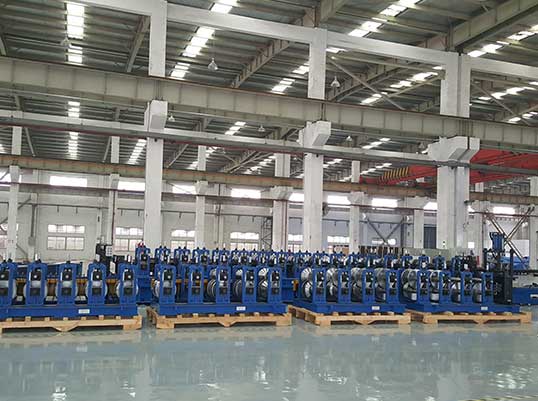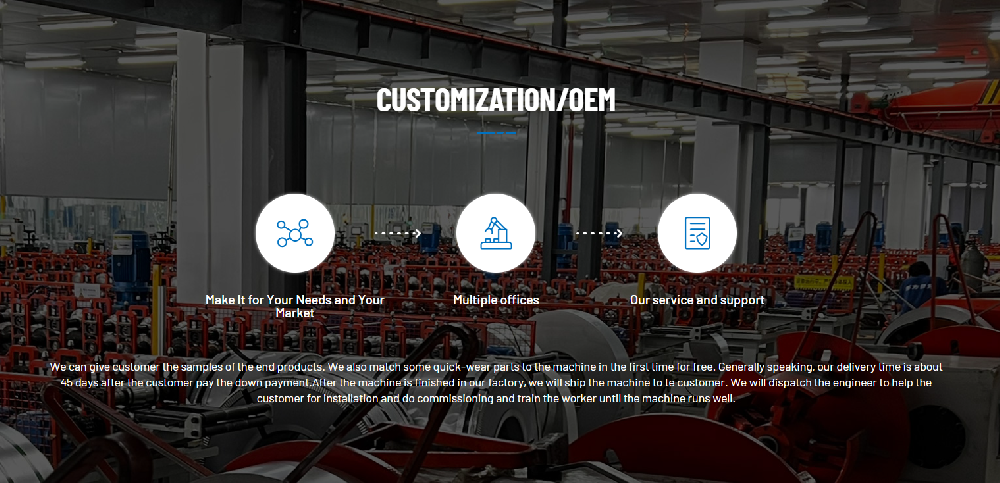Navigation Menu
Contact Us
- Email:
- info@wxavatar.com
- Address:
- Yurong Village, Yuqi Street, Huishan District, Wuxi, China.
Release Date:May 24, 2025 Visit:77 Source:Roll Forming Machine Factory
Solar stand roll forming machines have become essential equipment in the renewable energy infrastructure sector. These specialized machines produce the metal supports and frames needed for solar panel installations. Recent advancements in manufacturing technology have significantly improved the performance and output quality of these machines. This article examines the technical features that contribute to the enhanced operational efficiency of contemporary solar stand roll forming equipment.

Precision Engineering Components
Modern solar stand roll forming machines incorporate several precision-engineered parts that work together to improve performance:
High-grade alloy tooling with extended service life maintains consistent product dimensions
Computer-optimized roller designs reduce material stress during forming
Precision-ground shafts ensure smooth operation with minimal vibration
Advanced bearing systems decrease rotational friction in critical components
These mechanical improvements allow for tighter tolerances in the finished solar support structures while reducing wear on machine parts.
Advanced Control Systems
Current-generation machines feature sophisticated control technologies that enhance production efficiency:
Programmable logic controllers with touchscreen interfaces simplify operation
Servo-driven positioning systems provide accurate length measurement and cutting
Automated lubrication systems maintain optimal machine condition
Real-time monitoring capabilities allow for immediate adjustment of production parameters
These control systems minimize setup times and reduce the potential for operator error during production runs.
Production Optimization Features
Manufacturers have implemented several design improvements that contribute to higher output:
Faster line speeds enabled by robust drive systems
Quick-change tooling systems that reduce downtime between production runs
Integrated punching and notching stations that complete multiple operations in one pass
Automatic stacking systems that organize finished products for handling
These features allow solar stand manufacturers to increase throughput while maintaining consistent product quality.
Material Handling Improvements
Efficient material management contributes significantly to overall machine productivity:
Heavy-duty decoilers handle larger coils with improved stability
Precision straightening systems ensure flat material entry into the forming process
Automatic feed systems maintain consistent material flow
Scrap management solutions keep the work area clear during operation
Proper material handling reduces stoppages and improves the smooth operation of the entire production line.
Maintenance and Serviceability Features
Modern designs incorporate elements that simplify upkeep:
Modular component construction for easier part replacement
Accessible service points that reduce maintenance time
Wear indicators that signal when components need attention
Standardized spare parts that are readily available
These considerations help maintain consistent machine availability over extended periods of use.

Conclusion
The efficiency improvements in contemporary solar stand roll forming machines result from numerous incremental advancements across all machine systems. From precision mechanical components to intelligent control systems, each enhancement contributes to higher productivity, better product consistency, and more reliable operation. As solar energy infrastructure continues to expand globally, these manufacturing solutions will play an important role in meeting the demand for high-quality support structures. Manufacturers investing in this equipment can expect improved production capabilities that help maintain competitiveness in the solar installation market.